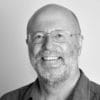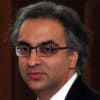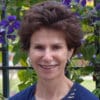Home » ESSWE 7
For the programme of the conference, see under Programme
The history of Western Esotericism from antiquity to the present is filled with reports of unusual and sometimes spectacular experiences that are claimed to convey higher, deeper, or even absolute knowledge about the true nature of reality. Some typical examples are the many references to direct supra-rational gnosis, ecstatic experiences, and states of divine manía (madness or frenzy) or possession from antiquity to the present; visionary travels to other places, other worlds, or other levels of reality, as well as to past or future periods and events; visionary encounters with intermediary beings (for instance angels, demons, spirits, elementals, ascended masters, divinities); the hearing of inner voices, receiving or “channeling” of spiritual messages, and communication with disembodied entities; and ineffable experiences (for instance apophatic unity) that are difficult or impossible to express through normal discursive language. Common to all such reports is that they fall within the general phenomenology of human consciousness and seem to require some kind of modification or alteration of the normal or average mental states that allow us to negotiate consensus reality. All this makes the experiential dimension of Western esotericism (in both its historical and its contemporary social manifestations) extremely relevant to academic disciplines such as cognitive studies, consciousness research, psychology, or psychiatry. ESSWE7 will be the first major international conference to bring these perspectives in conversation with one another in the context of the study of Western esotericism.
On the level of the humanities and the social sciences, we hope that the conference will provide participants with an ideal opportunity for learning about the phenomenology of unusual experiences across the entire historical spectrum of Western esotericism from antiquity to the present. Here the emphasis will be on empirical research and specialist knowledge about specific historical and contemporary cases. Furthermore, on the level of the study of consciousness, we hope to explore larger and more theoretical questions concerning such topics as the taxonomy and etiology of altered states, their neurobiological foundations, or their relevance to wider concerns such as cognitive functioning or mental health. Here the emphasis will be on how such approaches may help us understand and even explain the rich record of historical and empirical materials central to Western esotericism and, conversely, how these can serve as case studies for the study of consciousness more in general.
During ESSWE7 the 20th anniversary of the Centre for History of Hermetic Philosophy and Related Currents (HHP) at the University of Amsterdam was celebrated.
The academic ambitions for this conference are high. While we are aiming for a large and inclusive conference, paper and session proposals will go through a careful selection procedure so as to make sure that the final program will have a sharp focus on the conference theme. We encourage creative and innovative thinking across disciplines combined with deep analysis of specific contexts, materials, sources, or topics. As the ESSWE wants to provide a podium for intensive contact and exchange between scholars on all levels of the academy, graduate and post-graduate students as well as more experienced or established scholars are all encouraged to participate and submit proposals for papers. We are confident that ESSWE7 will be a foundational event for a budding new field of research that has considerable potential for the future.
Peter J. Forshaw, Wouter J. Hanegraaff, Manon Hedenborg White, John MacMurphy, Mriganka Mukhopadhyay, Marco Pasi. Secretarial assistance: Antoinette Rutten.
Wouter J. Hanegraaff, Egil Asprem, Christine Ferguson, Peter J. Forshaw, Julian Strube.
ESSWE7 took place in the old center of Amsterdam. Keynote lectures and all parallel sessions will be in the Oudemanhuispoort, Oudemanhuispoort 4-6, 1012 CN Amsterdam.
Amsterdam is a very busy tourist city, so it is advisable to book your hotel as early as possible. A list of suggestions concerning hotels, hostels, and private rooms is available on the ESSWE7 website and Facebook page.

Karl Baier is Associate Professor and, since 2013, head of the Department of Religious Studies.

Sonu Shamdasani is a London-based author, editor, and professor at University College London.

My research focuses on ancient Greek religion and its role within the society.
A complete study programme in Western esotericism.
The HHP Centre is fully integrated in the University of Amsterdam’s educational system.
The Center for History of Hermetic Philosophy and Related Currents (HHP) is part of the Faculty of Humanities at the University of Amsterdam. We are committed to the highest standards of critical academic scholarship, independent of any worldview.
Visiting adress:
Bushuis / Oost-Indisch Huis
Kloveniersburgwal 48
1012 CX Amsterdam
The Netherlands
Postal adress:
Postbus 1622
1000BP Amsterdam
Email: hermetica-fgw@uva.nl
The Center for History of Hermetic Philosophy and Related Currents (HHP) is part of the Faculty of Humanities at the University of Amsterdam. We are committed to the highest standards of critical academic scholarship, independent of any worldview.
Visiting adress:
Bushuis / Oost-Indisch Huis
Kloveniersburgwal 48
1012 CX Amsterdam
The Netherlands
Postal adress:
Postbus 1622
1000BP Amsterdam
Email: hermetica-fgw@uva.nl
The Centre for History of Hermetic Philosophy and Related Currents (HHP) is part of the Faculty of Humanities at the University of Amsterdam. We are committed to the highest standards of critical academic scholarship, independent of any worldview.
Visiting adress:
Bushuis / Oost-Indisch Huis
Kloveniersburgwal 48
1012 CX Amsterdam
The Netherlands
Postal adress:
Postbus 1622
1000BP Amsterdam
Email: hermetica-fgw@uva.nl
© HHP 2022 – by Digital Marketing Agency MIAX